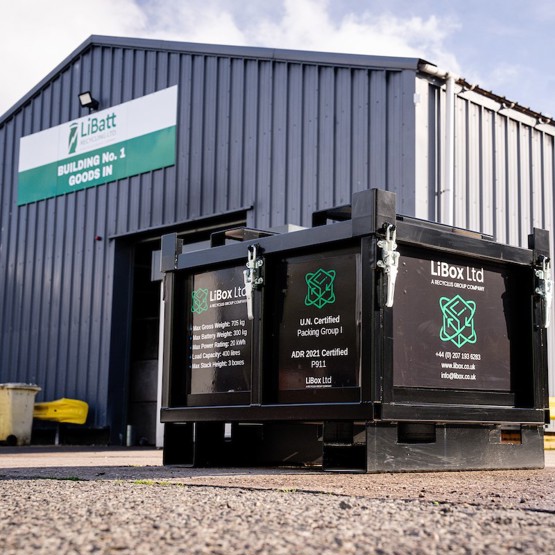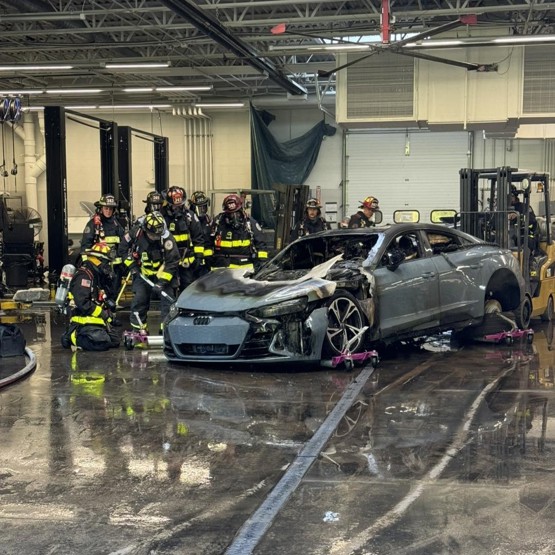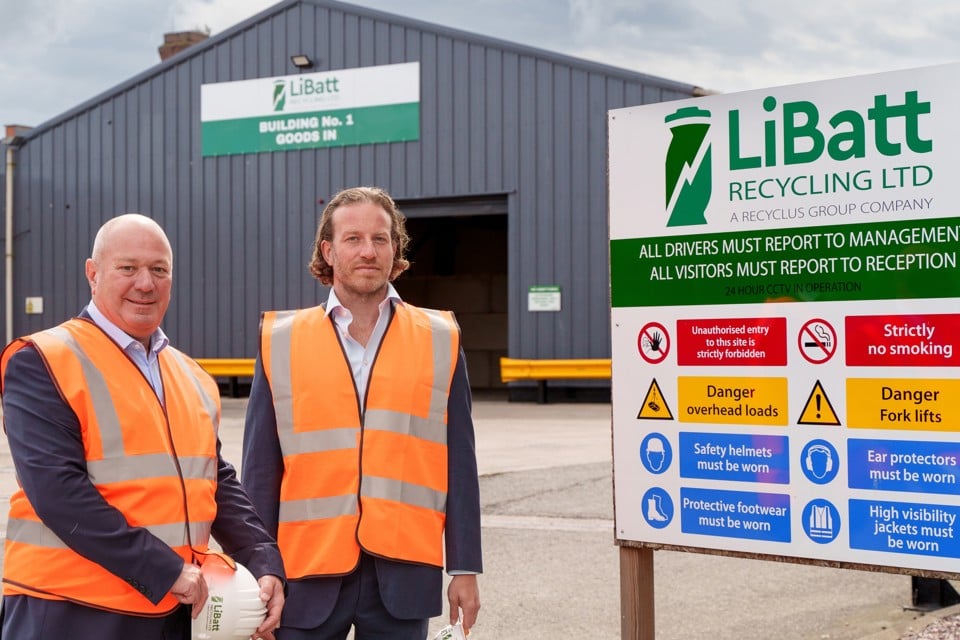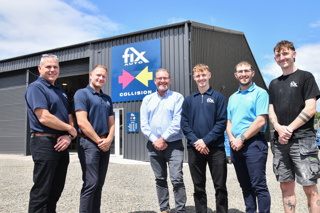As the UK accelerates its transition towards electric vehicles (EVs), the need to develop sustainable practices, particularly the recycling of EV batteries, is becoming increasingly important.
With over a million EVs now on the road and projections pointing to nearly four million by 2027, the capacity to recycle and dispose of these batteries responsibly is also coming under ever greater scrutiny.
While garages are legally required to handle the safe disposal of EV batteries, the reality is, however, that the infrastructure and processes to do so on a large scale are still in their infancy.
As the UK accelerates its transition towards electric vehicles (EVs), the need to develop sustainable practices, particularly the recycling of EV batteries, is becoming increasingly important.
With over a million EVs now on the road and projections pointing to nearly four million by 2027, the capacity to recycle and dispose of these batteries responsibly is also coming under ever greater scrutiny.
While garages are legally required to handle the safe disposal of EV batteries, the reality is, however, that the infrastructure and processes to do so on a large scale are still in their infancy.
EV batteries, particularly lithium-ion batteries, are not only large and heavy but also contain hazardous materials that can be harmful if not handled properly.
 Recycling batteries can recover valuable materials like lithium, cobalt, nickel, and manganese, which can then be reused in the production of new batteries - but it remains a logistical challenge. Several companies and initiatives are focusing on the recycling of EV batteries.
Recycling batteries can recover valuable materials like lithium, cobalt, nickel, and manganese, which can then be reused in the production of new batteries - but it remains a logistical challenge. Several companies and initiatives are focusing on the recycling of EV batteries.
One of the key players involved in this process is the Recyclus Group, the UK’s first industrial-scale recycler of lithium-ion batteries which is dedicated to developing a stable supply chain for battery metals.
The Vehicle Remarketing Association recently invited Robin Brundle from Recyclus to explain more about recycling both lead-acid and lithium-ion batteries used in EVs, and Automotive Management met him there.
Wolverhampton-based Recyclus was founded by Brundle and Alex Stanbury, the latter a seasoned corporate finance specialist with over 15 years of experience in the natural resource sector.
Automotive retail veterans will already know of Robin Brundle as the one-time managing director of the family-owned franchised dealer group Brundles which represented brands including Toyota, Lexus, Volkswagen, Maserati, TVR, Peugeot and Honda in West Norfolk over a four decade period before the last Brundle dealership was finally sold in 2006. And he's the younger brother of former Formula One racer and now Sky Sports F1 commentator Martin Brundle.
Five years on since Recyclus was first incorporated, and more than a decade since early electric cars such as the Peugeot Ion, Renault Fluence and Nissan Leaf went on the road, Brundle is keen for the UK's automotive sector to appreciate that the battery recycling issue will only accelerate like the curve in a hockey stick.
"With the increasing number of EVs, the demand for effective recycling solutions is growing rapidly," he says. "We are already seeing batteries from every age sector of vehicles being stored up, waiting to be recycled."
Safety Risks and Proper Handling
 One of the key concerns with EV battery recycling is the potential for fires and explosions as lithium-ion batteries, especially those that are overcharged or undercharged, can easily become volatile.
One of the key concerns with EV battery recycling is the potential for fires and explosions as lithium-ion batteries, especially those that are overcharged or undercharged, can easily become volatile.
Brundle shares his experience: "In the year since we’ve been running, we’ve had two events where we’ve gone straight to explosion without any form of smoke or thermal warning. This highlights the importance of understanding the risks and having proper safety measures in place.
"When we talk to OEMs and large and small and independent dealer groups, it's very clear that the journey for the end of life battery hasn't settled properly. There isn't a single person that we can see is fully ready to handle the problems and risks.
"From my experience in the automotive industry, I could see that safe storage on site was going to be a problem because we end up with cardboard boxes full of replacement parts awaiting an OEM to come and collect them."
Brundle pointed to the ‘thermal incident ‘at Inchcape Audi’s Swindon operation in December 2023 - which he says was confirmed at the time as beginning within a vehicle workshop and involving an EV as a result of there being no one to collect the cells in a timely fashion.
Innovation in Storage Solutions
 To mitigate these risks, Recyclus Group has developed specific box, certified to the ADR P911(1) United Nations safety standard, for safe on-site storage and transport of batteries.
To mitigate these risks, Recyclus Group has developed specific box, certified to the ADR P911(1) United Nations safety standard, for safe on-site storage and transport of batteries.
He says the box could be crucial for smaller independent garages that may not have the resources to manage hazardous waste.
The company has partnered with Slicker Recycling to provide a collection service using these boxes, ensuring that even small quantities of batteries are handled safely.
Recyclus Group, which has been fully operational for over a year, is licensed to process 22,000 tonnes of batteries annually.
"We’ve evolved to make the process ‘cradle to cradle’," he explains. "Our Wolverhampton plant ensures that the valuable materials in batteries are recovered and reused, rather than ending up in landfill. Importantly, our process uses zero water and achieves zero to landfill, making it highly sustainable."
Recyclus Group’s approach to battery recycling is deeply rooted in the principles of the circular economy and will ultimately recover and process key materials from the batteries, in to what is called black mass.
The goal of recycling black mass is to separate the metals from the other materials and remove toxins so the metals can be recycled more effectively.
Currently sent abroad for further separation, Recyclus plans to develop this final stage of processing in the UK within 18 months.
Brundle said developing a closed-loop system was crucial: "By 2035, the way in which recycling processes have improved, combined with advancements in battery manufacturing, will allow us to recover enough materials from one old battery to produce five new ones. This is a significant step towards reducing our reliance on raw material extraction and minimising the industry’s carbon footprint."
Collaborating for the Future
The journey towards a fully sustainable battery recycling industry requires collaboration across the automotive sector, from manufacturers and insurers to garages.
Brundle highlights the role of education in this process across the industry: “It’s crucial to understand the volatility of a swollen battery or damaged case – even over- and under- charged which can have their own chemical reaction without having to be damaged - and have proper training programmes in place."
Recyclus Group has itself been actively involved in shaping industry standards and policies. The company has been feeding into government committees responsible for developing the UK’s mineral and battery strategies, ensuring that the country is well-prepared to handle the growing volume of EV batteries.
Learn more about sustainability strategies in a dedicated session at Automotive Management Live 2024.
Guest speakers Alison Jones of Stellantis, Jennifer Wilson of Auto Trader and Paul Hyne of Black Horse will provide insights in the seminar, 'Creating The Sustainable Dealership Of The Future'
Brundle said that due to input into the government select committee from the insurance industry and academia, a ‘do not fix’ policy is being actively promoted
“From an insurance perspective, the grey market is an issue where you may have vehicles that need a repair going to an uncertified operator who's getting a cell off of eBay, repairing the vehicle - and then there's loss of life.”
The current challenge in battery recycling is compounded by the fact that many batteries are not designed with repairability or end-of-life processing in mind.
Insurance companies, wary of the risks, often prefer to write off vehicles with damaged batteries rather than attempt repairs. This has led to high costs, with battery pack replacement estimated at around £18,000, plus labour, which is a significant factor in the decision to write off vehicles.
Despite pressure to ensure that future battery designs include features such as safe discharge points and easier dismantling to facilitate repairs and recycling, the need to scale up capacity to meet the current demand is pressing.
Innovation in Mobile Solutions
 To further enhance its recycling capabilities, Recyclus Group has developed a mobile recycling unit in collaboration with the University of Birmingham to reduce the incidence of lorry fires caused by damaged batteries during waste collection.
To further enhance its recycling capabilities, Recyclus Group has developed a mobile recycling unit in collaboration with the University of Birmingham to reduce the incidence of lorry fires caused by damaged batteries during waste collection.
Backed by a £2 million Innovate UK grant the West Midlands university helped shrink the industrial-scale battery recycling process to ensure that no component goes to landfill by shredding and safely extracting all materials in an inert, nitrogen-filled environment.
The mobile unit - a lorry equipped with the technology to process batteries on-site - is designed to handle varying volumes, from half a tonne to two tonnes per hour, making it adaptable to different scales of operation.
Brundle explains the rationale behind this initiative: "We’ve seen the challenges that arise when batteries are not properly processed at the point of collection. Our mobile unit will ensure that batteries are safely recycled on-site, reducing the risk of fires and environmental damage."
The mobile lorry will also provide certification of genuine destruction, which is crucial for regulatory compliance and liability management.
A significant driver for this project has been the anticipated implementation of a fourth bin collection system across the UK, funded by levies on battery producers.
Scaling Up for the Future
Recycling businesses are seeking to establish new plants quickly and are lobbying for an fast track system to expedite the issuing of permits from the relevant environmental agencies.
As demand for EV battery recycling grows, Recyclus Group is also scaling up its operations to meet the challenge. The company is exploring the establishment of additional plants across the UK to increase its capacity to handle the surge in end-of-life batteries.
Brundle is confident about the future: "Our goal is to be fully prepared for the hockey stick curve of demand that we expect to see by 2030."
As Brundle succinctly puts it: "The problem is here, and we’re ready to tackle it head-on. Through innovation, collaboration, and a commitment to sustainability, we’re leading the charge towards a greener future."

Login to continue reading
Or register with AM-online to keep up to date with the latest UK automotive retail industry news and insight.



















Login to comment
Comments
No comments have been made yet.